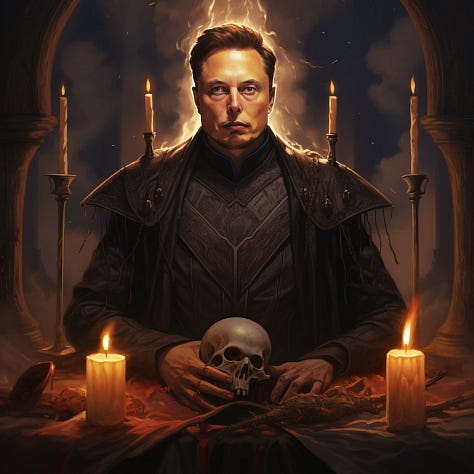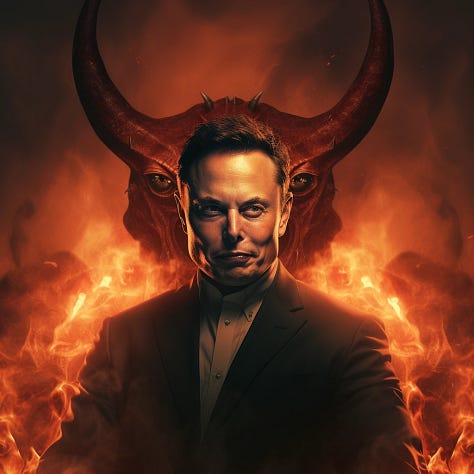The Elon Musk Story (So Far): Two-thirds epic romance, one third tragedy
I review Walter Isaacson's biography.



Writing book reviews is no way to make a living, at least if you’re conscientious. But I couldn’t turn down a chance to engage with Walter Isaacson’s biography of Elon Musk, despite its more than 600-page length. Someone on Twitter said, not without justification, that the review seems like a “summary of the content of the book rather than a review of it.” The critical approach lies primarily in what I chose to highlight, which is vastly different from the typical approach, as exemplified by this NYTBR review.
For its first two-thirds, Walter Isaacson’s mammoth biography of Elon Musk is an epic romance, like The Lord of the Rings (a Musk favorite) or the Arthurian legends. It portrays the hero and his comrades overcoming seemingly insurmountable obstacles through daring, determination, cleverness, and skill, all in the pursuit of noble goals.
The critical moment in that tale comes in 2008, which Musk described to Isaacson as "the most painful year of my life." His marriage broke up. One after another, the first three SpaceX rockets exploded before reaching orbit. The first Tesla Roadsters came off the line, but only with hand fitting at an exorbitant and unsustainable cost. He ran out of money. His audacious ventures appeared doomed. Everyone told Musk that his best chance was to try to save one company and let the other go out of business. But he refused to choose between Tesla and SpaceX.
"For me emotionally, this was like, you got two kids and you’re running out of food," he told Isaacson. "You can give half to each kid, in which case they might both die, or give all the food to one kid and increase the chance that at least one kid survives. I couldn’t bring myself to decide that one was going to die, so I decided I had to give my all to save both." (Lest you think the analogy callous, consider that Musk had seen his first child die in infancy. "He cried like a wolf," his mother told Isaacson. "Like a wolf.")
SpaceX was saved by a $20 million venture capital infusion from an unlikely source: the PayPal founders who’d kicked Musk out as CEO eight years earlier. "It was an interesting exercise in karma," he told Isaacson, a reward for not holding a grudge. The infusion would allow SpaceX to try one last launch before running out of cash.
Read the rest here.




The question is how,what happened to turn the poster boy for merit based immigration into wanting to be a right-wing influencer?